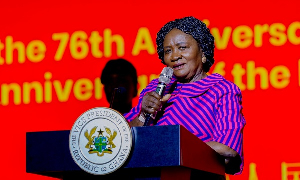I have heard lots of commentary being run by various media platforms; be it television, radio, internet, newspapers etc. Whatever the case seems to be, there seem to be a universal agreement about what really caused Greece to head straight toward the current financial disarray in which it finds itself.
On the other hand, what seems to be lacking worldly is a solid solution to the problem. Thus it is very important that countries look at the Greek experience from a focused position, in other to avert the same calamity from befalling it. We should not underrate the fact that what is happening to Greece can happen to most countries especially those that do not find themselves in the league of the first world countries.
The current Greek government which came to power with lots of enthusiasm- to help the people of the once great hub of scholarly activities end the harsh conditions and lifestyle that the European Union (EU) and the International Monetary Fund (IMF) have subjected the people of Greece to in the form austerity.
As clearly emanating, it is not an easy task at all to deal with the EU and IMF. Greece had to depend on a hasty referendum to be able to ascertain the next step of action. It is now clear that the Tsipras led government have realized that the negotiators from the other side are not an easy nut to crack. The minister of Finance has to even resign.
One may say ‘Enough of Greece. How is Greece relevant to Ghana?’ Greece’s relevance to Ghana is numerous. Today’s world is a global village where states are no longer autarkies- everybody needs somebody. What happens in Greece is significant to Europe- the biggest trade partners of Africa. Significantly, the trickling effect is so massive that the interwoven tapestry of the economies makes it possible for all to suffer in one way or the other if a small part of the entire woven structure gets breached.
Ghana has gone through what Greece is going through on several occasions in various shapes and forms from the 1980s even during the turn of the millennium. When we thought we had learnt our lessons at least according to what the books say, we end up getting back into that worse situation again. The cycle keeps repeating itself, over and over.
In the mid 2000s Ghana did something right, during that era things got well. The always pessimistic feelings and speeches about the economy of the country changed to that of great optimism for the future. For once people started believing it would be well as Nkrumah had started and wanted it to be. Yet that optimism was just crashed.
Today, the common song on the lips of most Ghanaians are “times are hard, things are not well” and the rest. This is very alarming because at the moment, the IMF can no longer salvage our economy. Times have change and we as a people with one vision and one destiny have to be at the frontier on healing the economy and making it strong. Doctors make it clear; healing begins with the patient not the healer. The IMF together with the EU has not been able to help Greece, a brother in Europe. How more Ghana?
As such it is important that these important tenets or factors are considered and positive and pragmatic actions taken to carefully prevent them or carefully implemented to help this nation of ours.
The first tenet to be looked at is the fact that we have moved past the era of debt cancellation. Debt cancellation is very important in the economies of developing countries. After most countries become heavily indebted, the only positive solution to have a clean start is for their debts to be forgiven. The books states clearly that after debt cancellation, the economies of those countries begin to grow, that is one of the reasons why Ghana’s economy become better in the mid 2000s. Greece wants to benefit from this but it has not happened, this should tell Ghana that no way would the IMF and other creditors forgive us of our sky rocketing debts. So those in charge of our finances and spending must ensure that we always spend within our means.
In the wake of the Greece crises about half a decade ago, the song that was being played to Greece was that they had spent monies they do not have, in effect they have a huge budget deficit and that is totally wrong. This budget deficit happens in this country (Ghana) every year especially election years- it escalates beyond exponential levels. There must be a change in our spending attitude. If we do not change that attitude, then it must be said that those of us (living in this era in Ghana) will always complain of hardships till we die.
The second factor that has to be looked at is the depreciation and devaluation of currencies. These are very important factors that need to be addressed. Anytime a country’s currency becomes over depreciated, one of the solutions it has to adopt as a stop guard is to devalue the currency. Ghana has done that already. And at the time of the depreciation, from the books the Cedi had more value than the dollar. What happened? Constant fiscal indiscipline has pushed the cedi back to the ground and now the dollar has outwrestled it so much that its (cedi’s) value changes every week. Those in charge of our finances seem to have no concrete solution to the consistent depreciation of the cedi. At this time too, devaluation is not the answer because our monetary monitors would not permit that. Why do you repeat mistakes from the past when you know it will be a great challenge to fix? Maybe you have an answer.
Rippling effect of other economies on ours is one tenet too that has to be looked at. Should Greece fall out of the Eurozone? The major players in Europe will also suffer because of how closely linked the economies are. In fact they use the same currency, so the meltdown would just be felt by everyone who uses the currency. That is not same for Ghana. However, what happens is that the economy of other African countries has an effect on Ghana’s economy too. Relatively speaking, most of the economies surrounding Ghana have not been sound in the past years. Due to a lot of issues- ebola, terrorism, political instability to say the least. Having this in mind you do not do things internally that will make the external factors have an effect on you so as to keep the economy on its feet.
The last but not least is to identify more areas for productivity. Greece has to do this. Ghana has to increase productivity. We do not have to depend on our traditional sources of income alone. We have to explore more areas that will be beneficial for the growth of the economy.
Greece is a classic example. We just have to learn well.
FROM : ASAMOA YEBOAH
LOCATION : KASOA
Opinions of Saturday, 11 July 2015
Columnist: Yeboah, Asamoa Ernest














